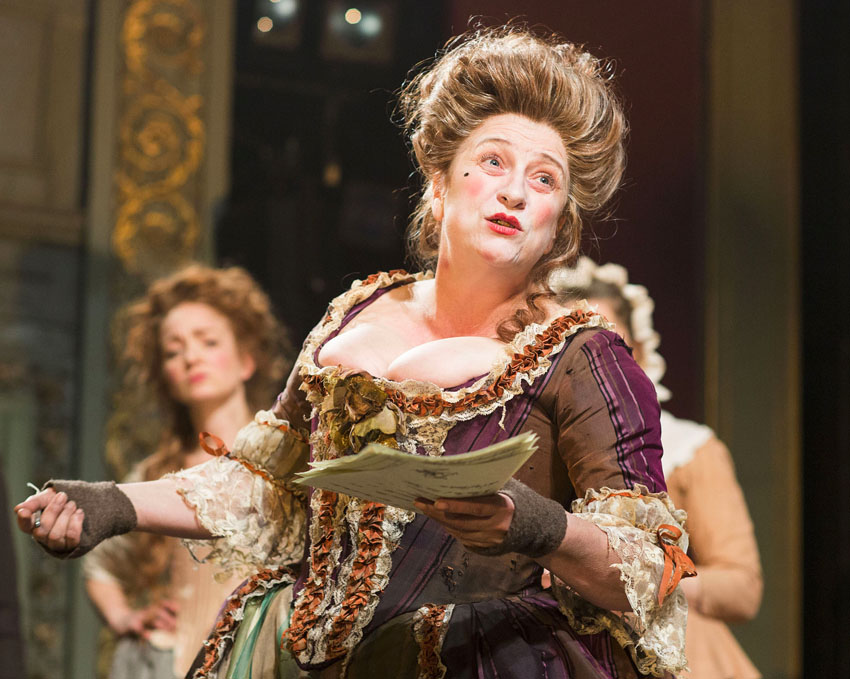The book is one of those more sniggered about than read. Not so much a manual of sex as the 70’s bearded recipe book, The Joy of Sex, but the reminiscences, laid out in letter form, of a young, parentless country girl who finds herself in sin city. Frances Hill (Fanny) is a girl who falls in love with sex as she falls in love for the first and only time. It is the story of a girl seduced by pleasure as much as by men. At one point in the book Fanny compares favourably the pleasures afforded by sex to the pleasures of art and music. Not so much then the story of a fall as a gentle slide of a girl seduced by seduction itself. But Cleland makes more of it than a mere pornographic romp and shows some sympathy for the straits into which women could be reduced by circumstance.
In this stage version some liberties have been taken with the original which had the heroine, an innocent fifteen year old at the beginning of her adventures, yet still a young girl not yet nineteen when she becomes a woman of independent means on coming into the inheritance left by one of her lovers. In the adaption by April de Angelis Fanny is presented at the start as a somewhat broken down old tart who is persuaded to give her charms to tens if not hundreds of men in the form of a reminiscence put down in a book. Her supposed story is then acted out by a few of her friends. The young Fanny is played out by her friend, Swallow (the bird that is – she doesn’t swallow) with a kind of winking innocence by the excellent Gwyneth Keyworth, as Quentin launches into a series of rapacious madams. (The original publisher of the book is reported to have made some ten thousand pounds from the venture having paid Cleland a few tens of guineas).
Perhaps inevitably, the result is episodic in form, but what we lose in terms of Fanny’s inner life we gain in the redaction of the repeated circumlocutions describing a cast of private parts and the repeated act of fucking itself. The cast go to it with some gusto. Nick Barber gives us a witty, clever, but pointless Voltaire by way of prologue followed by a bagful of assorted customers as Dingle. Mawgan Gyles, the only other male member (of the cast) likewise gives an adaptable Spark. Phoebe Thomas struts around as the unblushing Louisa who eventually finds a chaste and somewhat dispiriting salvation. Rosalind Steele on the other hand, the sole musician, provides a wholesome, if slightly bemused contrast to the other disreputable crew.
Now nothing is quite as exhilarating, theatrically speaking that is, as an actress at the top of her game playing a trollop with relish. The more than adequately buxom Caroline Quentin slides comfortably into the part of the eighteenth century woman of pleasure with little room to spare as she flirts with, cajoles and teases the audience. It is a well-rounded performance with anger, wit, warmth – and a fine singing voice. Given the structure of the play she has the task of holding the whole together and she commands the stage with great virtuosity. Those who know her only from her television roles will be pleasantly surprised.
Director, Michael Oakley has come up with some clever ways to bring copulation to the stage without scaring the horses and makes the most of Andrew D Edwards’ clever and stylish set. Music and songs by Pete Flood have a nice period feel and bring welcome variety without holding up the flow, always adding to the mood and characterisations. The whole thing is lit with equal style by Richard Howell.
All in all this is a self-consciously bawdy romp performed by a top class cast in the perfect setting of the Bristol Old Vic. ★★★★☆ Graham Wyles 12/02/15
Photos by Helen Maybanks


